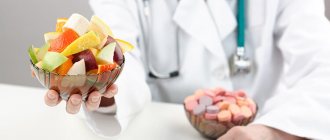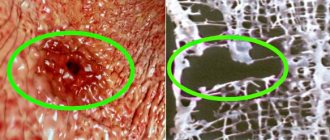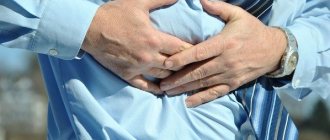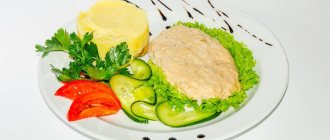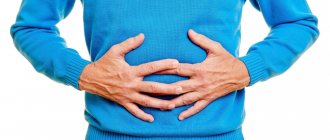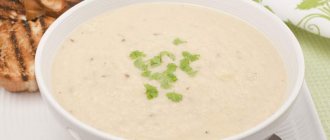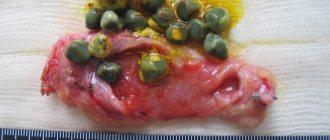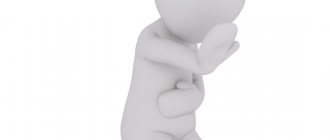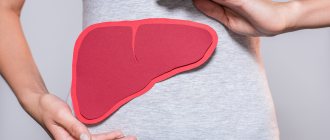The role of bile in digestion
Bile is a digestive juice that is continuously produced during choleresis by liver cells and hepatocytes. Through a system of tubules, it is collected in the gallbladder, accumulated, concentrated, changing its composition, and stored there between meals. During the active digestive phase, cholekinesis occurs - the release of mature gallbladder bile from the bladder into the duodenum (duodenum). Part of the young liver bile enters the digestive tract directly from the liver.
When partially processed food from the stomach enters the duodenum, bile and pancreatic juice also enter here. Bile inactivates pepsin, the main enzyme in gastric juice that breaks down proteins into simple peptides and free amino acids. Pepsin is dangerous for pancreatic enzymes. Therefore, its neutralization promotes a change from gastric digestion to intestinal digestion. Bile acids emulsify fats, increasing their contact area with digestive enzymes. Next, pancreatic lipase begins to actively break down fats.
In addition to its digestive function, bile acts as an absorbent, forming water-soluble complexes of vitamins A, D, E, K and minerals (iron and calcium). The third important function of bile is excretory. Bile promotes the elimination of lecithin, bilirubin, cholesterol, bacterial toxins, medications, heavy metals and bile salts formed during digestion. Bile also plays the role of a digestive regulator: it stimulates the formation and secretion of new portions of bile, enhances the motor and secretory activity of the small intestine.
Turmeric
The spice contains a large amount of curcumin, which has been used since ancient times as a powerful anti-inflammatory and lipid-lowering agent. Curcumin stimulates the formation of bile in hepatocytes, increases the tone of the gallbladder and significantly facilitates its emptying.
The effect of curcumin on gallbladder smooth muscle has been studied in detail in a large number of studies.
For example, scientists from Indonesia came to the conclusion that just 20 mg of curcumin reduces the volume of the gallbladder by 3 times, and the effect lasts for 2 or more hours. Activation of organ peristalsis has a beneficial effect on the evacuation of bile, which is very useful for patients with chronic cholecystitis or hypomotor type biliary dyskinesia.
In addition, consuming turmeric helps prevent the formation of cholesterol stones.
Turmeric can be added to any dish; it improves not only taste, but also aesthetic qualities, giving it a bright honey color. An alternative option is to drink plant-based teas.
Turmeric is indispensable for people with chronic gallbladder diseases and weakness of motor activity of the biliary tract. Also, consuming spices reduces the risk of urolithiasis.
Mechanism of action of choleretic products
The most common cause of bile stagnation is poor nutrition. Therefore, for the prevention and treatment of this disease, it is recommended to follow a special diet that includes choleretic products. Their mechanism of action is based on stimulating contraction of the gallbladder. Strengthening its motility improves the process of bile outflow and normalizes the process of its excretion into the duodenum, and then into the intestines.
In the morning, after sleep, the gallbladder is most relaxed, the outflow of secretions from it is slowed down and severe stagnation of bile is observed. A proper choleretic breakfast helps make it contract more actively in order to improve outflow.
Symptoms of cholestasis
It is also very important, before thinking about what foods and drugs dilute bile, to find out whether this is necessary, focusing on whether you have symptoms of cholestasis.
So, such a disease is characterized by the following symptoms:
- feeling of discomfort in the right hypochondrium;
- periodically there is yellowish-green vomiting on an empty stomach;
- there are problems with the throat and neck, which hurt, swell and swell;
- bitterness appears in the mouth;
- during the daytime, burning and itching of the feet may be felt;
- problems with urination begin.
Choleretic products
Knowing which foods affect the functioning of the biliary system, you can follow a diet and prevent bile stagnation without the use of medications. Products that stimulate the flow of bile are conventionally divided into several groups.
Vegetable oils
Vegetable fats (sunflower seed oil, flaxseed oil, olive oil, corn oil, etc.) should be present in the daily human diet. They have a beneficial effect on the functioning of the entire digestive tract and stimulate the flow of bile into the duodenum. The most useful vegetable oils are obtained by direct extraction and have not undergone heat treatment. Therefore, they are recommended to be used in food as part of sauces and as a dressing for salads. Taking a few tablespoons of vegetable oil in the morning 30 minutes before meals stimulates the active release of bile.
Fresh vegetables and fruits
Fruits and vegetables are the main components of the daily diet. They are valuable sources of fiber, vitamins and minerals. The list of vegetables that trigger the process of bile formation includes:
- tomatoes;
- all types of cabbage;
- carrots and beets;
- asparagus and artichokes;
- parsley, cilantro, dill;
- rhubarb and spinach;
- olives and black olives.
Fruits that have a positive effect on bile excretion include:
- dried apricots;
- figs;
- plum;
- apple;
- strawberry;
- bananas;
- citrus.
The most useful berries are rowan and lingonberry, both raw and as part of fruit drink, jelly, and compote. It is desirable that the bulk of fruits, berries and vegetables enter the body fresh. A breakfast of freshly squeezed juice and fruit helps the liver work productively throughout the day.
Spices and seasonings
Spices have a positive effect on the production and flow of bile. Therefore, they are used not only to enhance the taste of dishes and give them a special aroma, but also to normalize digestion processes. Cinnamon, chicory, turmeric, and ginger have a pronounced choleretic effect. This group of choleretic products should be used with caution. They can harm those who suffer from liver and gallbladder diseases.
Choleretic drinks
For the normal functioning of all organs and systems, it is necessary to maintain water balance and drink enough fluids. Its lack causes concentration and stagnation of bile. Liquid can enter the body in the form of plain or mineral water, tea, decoctions, compotes, etc. The following have a pronounced choleretic effect:
- hibiscus drink,
- water with lemon juice or apple cider vinegar;
- vegetable juices;
- fruit juices, compotes, jelly;
- vegetable broth from cabbage, carrots, beets;
- water with honey;
- decoctions of calendula flowers, rose hips, ginseng root, barberry berries, corn silk, immortelle flowers, dandelion leaves, wormwood, St. John's wort.
Before regularly using herbal decoctions, it is important to be examined for the presence of gallstones. The presence of stones can provoke hepatic colic.
Other useful products
Porridge made from whole grain cereals, bran, boiled meat, hard-boiled eggs, dried wheat bread (not freshly baked), and fermented milk products have the property of stimulating the outflow of bile. The best breakfast for the outflow of bile is buckwheat, oatmeal or rice porridge made from unpolished grains.
Butter has a choleretic effect, but it should be consumed in moderation. Cheese, cottage cheese, yogurt, yogurt, sour cream, and casseroles are healthy. Boiled lean meat and fish have a beneficial effect on the functioning of the liver and gall bladder. But the choleretic diet must be balanced. You should not uncontrollably include foods that stimulate bile secretion. It is better to create an individual diet with a nutritionist or use a ready-made menu tailored to your needs.
Folk remedies for normalizing gallbladder health
There is a huge range of effective folk remedies aimed at maintaining the health of the digestive system. First of all, these include medicinal oils and medicinal herbs.
Healing oils
In addition to oils taken with food, essential oils are also useful. The most common are peppermint oil, caraway oil, carrot seed oil, and grapefruit oil. They can be used using aroma lamps, compresses, and aroma baths.
Medicinal herbs
Herbs for the treatment of gallstones are used in the form of tea, decoction, salad or side dish. Plants whose medicinal effects have been proven are: turmeric, milk thistle, catnip, coltsfoot, goldenseal, etc.
Milk thistle for the prevention of diseases of the digestive system.
Nutrition rules and recommendations
The processes of formation and secretion of bile can be regulated by following simple principles of a healthy diet:
- eat regularly in moderation;
- reduce the amount of sugar and salt in your diet;
- enrich the menu with choleretic products, it is especially important for people prone to stagnation, so that breakfast is choleretic;
- do not overeat;
- reduce the amount of fat consumed;
- drink enough fluids;
- exclude cold and hot foods from the diet.
It is also important to lead an active lifestyle, give up alcohol and smoking, and do not abuse black coffee.
Nuts
Nuts have a pronounced anti-inflammatory effect, which is realized at the level of the entire human body.
Nuts also protect the mucous membranes of the gastrointestinal tract from mechanical damaging factors, bacterial flora and other pathogens (it is microorganisms that cause inflammation of the gallbladder).
Some scientific works note a slowdown in apoptosis (the programmed process of cell death) and a decrease in the risk of the formation of malignant tumors in various parts of the gastrointestinal tract with the regular addition of nuts to the diet.
Spanish scientists noted a decrease in the concentration of C-reactive protein and inflammatory mediators (interleukin-6) by 35% and 90%, respectively. This circumstance is important for people suffering from autoimmune pathologies of the gallbladder or having chronic cholecystitis with frequent episodes of exacerbations.
Nuts can be used as breakfast, snacks or as a food supplement. The most useful are:
- almond;
- Brazilian nut;
- hazelnut;
- cashew nuts;
- Walnut;
- pine nuts;
- pistachios.
Peanuts should also be included in this group. Although it belongs to the Legume family, it has physical and organoleptic characteristics similar to nuts.
Let's remember that in the last article we looked at 13 foods that improve digestion.
Nuts help suppress inflammatory processes in all organs of the gastrointestinal tract and prevent cancer.
Foods that interfere with the flow of bile
The following products can reduce the formation and outflow of bile:
- animal fats in large quantities;
- freshly baked bread and pastries, flour products;
- concentrated fish broth;
- mushrooms;
- fried foods;
- smoked, salted, spicy dishes;
- coffee;
- carbonated drinks;
- onion and garlic;
- legumes
But you shouldn’t exclude them from your diet. Each product, like a small brick, participates in the construction of our body. With the right balance of foods, it will be strong and healthy. Not all foods that reduce the production and secretion of bile are harmful. Many of them are necessary in small quantities for the body. The main thing is that the diet is properly balanced.
Cabbage
White cabbage is able to bind toxic metabolites in the lumen of the gallbladder (including excess cholesterol) and remove them into the lumen of the digestive tube along with bile. In this case, no reabsorption is observed.
Sea kale contains large amounts of organic iodine, which is necessary for adequate contractile activity. As a result of its use, there are no periods of increased or decreased motility, and the work of the gallbladder becomes harmonious.
Spinach, Brussels sprouts, kale, and broccoli , according to scientists, also contain substances that are sequestrants of bile acids, which prevent the reuptake of cholesterol.
It is recommended to eat cabbage for people with hypotonic disorders of the biliary tract. It is best to use the vegetable boiled or steamed.
Various types of cabbage improve the functioning of the smooth muscles of the gallbladder and help protect the mucous membrane from harmful factors.
Lemon
It has been proven that lemon increases the effect of local immunity factors, as well as the resistance of the gallbladder mucosa to increased pressure inside the lumen of the organ.
An additional feature is that citrus helps to normalize microflora and improve the functioning of the stomach and intestines. All this prevents the vertical migration of pathogenic flora.
In addition, lemon is widely used in folk medicine as a means to “cleanse” the gallbladder. But such “methods” have no scientific basis.
Lemon protects the gallbladder wall from additional destruction in the presence of inflammatory processes and prevents the development of complications.
Artichoke
No study has examined the effect of the vegetable on the intensity of stone formation in the lumen of the gallbladder.
However, it has been found that artichoke increases the rate of excretion of bile into the lumen of the gastrointestinal tract. Positive dynamics were noted in relation to hypotonic cholecystitis. A few hours after consuming the product, pain decreases and the volume of the organ decreases.
It is recommended to steam, grill or marinate the artichoke. When used in the form of a dietary supplement, consult a specialist.
Artichoke has a choleretic effect, dilutes and removes bile accumulated in excess from the lumen of the gallbladder.
General diet rules (Table)
To prevent gallbladder dysfunction, it is recommended to follow the following diet principles:
- You need to eat food fractionally (5-6 times a day) in small portions, maintaining the quality composition of each meal.
- The recommended content of proteins, fats and carbohydrates per day should be 80-100 g, up to 90 g and about 350 g, respectively.
- The daily volume of liquid is at least 2 liters, and the amount of salt is up to 10 g.
- You should give preference to thermally processed and soft foods, try to exclude spicy, fried, salty foods, and spices with a strong odor.
Below is a table of the main substances that are allowed and prohibited to be used for the treatment and prevention of diseases of the biliary tract.
| Product type | Preference should be given | Should be limited as much as possible |
| Flour products | Wheat or rye bread, preferably dried (in the air, in a toaster, etc.). | Fresh black bread, rich products. |
| Meat and meat products | Any varieties, boiled or steamed. | Fried and fatty meat with many veins, tendons, and skin. Canned food, duck meat. |
| Cereals, vegetables. | You should choose buckwheat or oatmeal with the addition of carrots. | Garlic, sorrel, onion, mushrooms. |
| Soups | Vegetable puree soups with added milk. | Meat and mushroom (rich) broths. |
| Beverages | Weak tea, cocoa. | Coffee, any alcoholic and carbonated drinks. |
Additionally, it is recommended to add vitamin complexes to the diet containing vitamins A, B, E, C, and folic acid.

